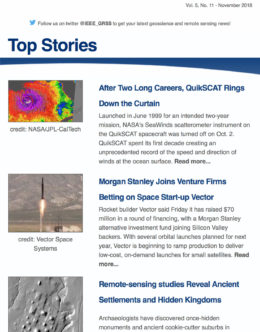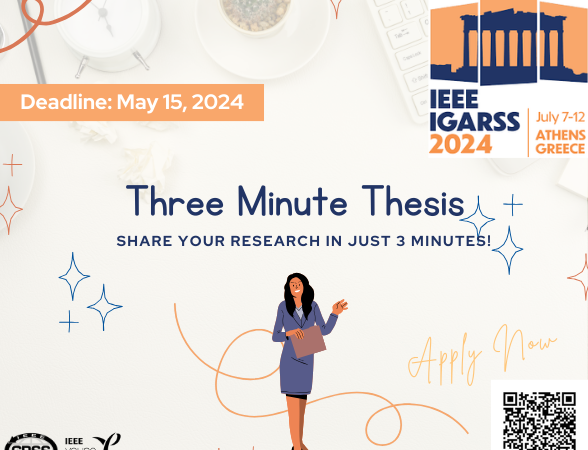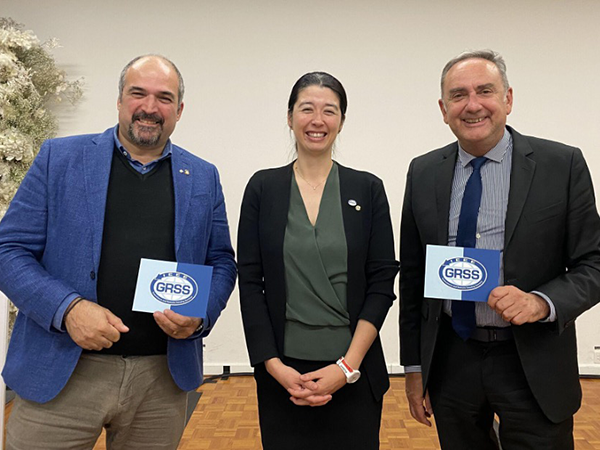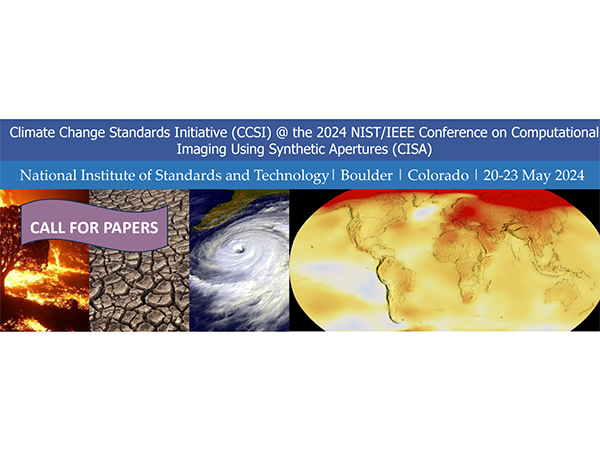LuTan-1: An Innovative L-band Spaceborne SAR Mission
Webinar Speaker: Dr. Robert Wang, Aerospace Information Research Institute, Chinese Academy of Sciences
- July 27, 2021
- 10:00 AM EDT
- Sponsored by GRSS
- IFT-TC Monthly Webinar Series
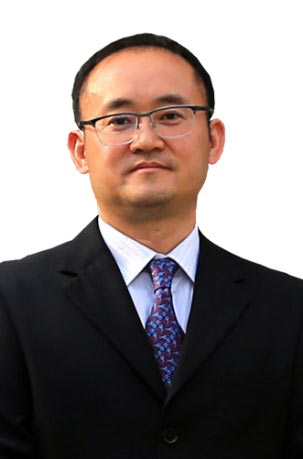
About the Webinar
LuTan-1 (referred as LT-1) is an innovative spaceborne Earth observation mission containing two satellites, feature each an advanced full polarimetric L-band SAR system. The duration of the mission is divided into two phases. In phase I, two satellites fly in a formation with a variable baseline, and the bistatic InSAR stripmap mode is utilized to acquire the global digital elevation and terrain models with high accuracy and spatial resolution. In phase II, two satellites shall share the common reference orbit with a 180-degree orbital phasing difference. The revisit time will be decreased to 4 days and topographic variations with millimetre accuracy at large scale can be measured using the differential InSAR technique. Beyond these objectives, many promising observation products will be acquired, e.g. the single-pass polarimetric InSAR for forestry application, the hybrid polarimetric for land classification, etc. LT-1 will improve the capacity of current SAR system for acquiring multi-dimensional information of Earth dynamic processes and monitoring the global environment. Currently, the twin satellites are being assembled and tested, and it is scheduled for liftoff in the Winter of 2021.
Speakers’ Bio
Prof. Dr. Wang received the B.S. degree in Communication and Information System from Henan University, Kaifeng, China, in 2002, the Ph.D. degree from Graduate University, Chinese Academy of Sciences, Beijing, China, in 2007.
Since 2012, Dr. Wang is Co-Principal Investigator (PI) for Helmholtz-CAS Joint Research Group concerning Space-borne Microwave Remote Sensing for Prevention and Forensic Analysis of Natural Hazards and Extreme Events. Currently, Dr. Wang is responsible for several National high-resolution spaceborne imaging radar missions. His major focus is PI for the SAR payload of LT-1, which is the first spaceborne mission in “National Civil Space Infrastructure (2015-2025)” in China. He in charge of overall performance of LT-1 SAR system, covering the scientific (bistatic SAR spectrum and processing algorithms), conceptual (spaceborne bistatic SAR system design and conception), and engineering (synchronization and system validation) aspects.
Prof. Dr. Wang is a Senior Member of the IEEE. He was a recipient of the National Ten Thousand Talent Program-Young Top-Notch Talent Program Award in 2014 and the National Natural Science Funds of China for Excellent Young Scholar in 2014. He received the Zhao Jiuzhang Award for Outstanding Young Science in 2015, the First Prize for Military Scientific and Technological Progress in 2016, the Scientific and Technological Innovation Leading Talent by National High-Level Talents Special Support Plan in 2017, and the Distinguished Young Scholars from the National Natural Science Foundation of China in 2018. He was the Session Chair at the European Conference on Synthetic Aperture Radar (EUSAR) and the International Geoscience and Remote Sensing Symposium (IGARSS) from 2012 to 2016. He has contributed to invited sessions at the EUSAR from 2008 to 2016, the European Radar Conference in 2009, and IGARSS from 2012 to 2016. He has been an Associate Editor for the IEEE TRANSACTIONS ON GEOSCIENCE AND REMOTE SENSING









